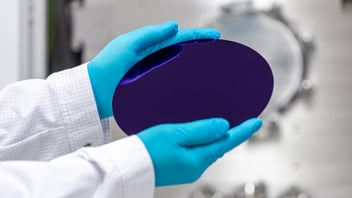A cleanroom is a production space designed to minimize the number of airborne particles to ensure the quality of the products being manufactured. Cleanrooms are essential in manufacturing processes where even the smallest impurities can compromise a product’s functionality, durability, and safety. This article explores the importance of cleanrooms in demanding equipment manufacturing.
What are cleanrooms?
Cleanrooms are controlled environments necessary for manufacturing processes requiring air quality far cleaner than standard indoor air. These spaces regulate the level of airborne particles, as well as humidity, temperature, and pressure.
Maintaining cleanroom air quality involves advanced filtration systems, such as HEPA and ULPA filters, which remove microscopic particles and microorganisms from the air.
To prevent additional contaminants, access to cleanrooms is strictly managed. At Mectalent, entry is through a pressurized airlock. Before entering the cleanroom, workers wear protective clothing including a coat, cap, gloves, and footwear intended for cleanroom use.
>> Read more about Mectalent's cleanroom

What are the most common cleanroom standards?
The ISO 14644-1 standard defines cleanroom air quality and particle concentration levels. It includes nine classes of air cleanliness, ranging from ISO 1 (the cleanest) to ISO 9 (equivalent to normal indoor air).
Mectalent’s cleanrooms meet the requirements of ISO 6 cleanliness class. This class allows up to 35,200 particles per cubic meter when the particle size is 0.5 microns. Such particles include fine dust, small bacteria, and aerosols. In comparison, normal indoor air can contain millions of particles of the same size. Operating room air typically corresponds to ISO 7 cleanliness class, which allows a higher particle concentration than ISO 6.
In the pharmaceutical industry, the Good Manufacturing Practice (GMP) guidelines also play a critical role. These define requirements for safety, quality, and reliability in production, covering raw materials, equipment, facilities, personnel hygiene, and training. GMP standards are often used in demanding equipment manufacturing as well.
Additionally, Mectalent's work is based on the certified quality system ISO 13485, which is a standard for the production of medical devices, and also includes guidelines for cleanroom operations.
How do cleanrooms improve product quality?
The benefits of cleanrooms for product quality are significant and include:
- Control of contaminants: Cleanrooms reduce the risk of contamination, ensuring that impurities do not affect materials, joints, or sensitive components.
- Reliable testing: Testing prototypes and new products in controlled cleanroom conditions improves the reliability of test results and reduces errors.
- Consistency in production: Cleanrooms provide a controlled environment where air quality, temperature, humidity, and other factors remain stable. This consistency ensures uniformity in assembly process and results in products of consistent quality.

Which industries benefit from cleanrooms?
Cleanrooms enable manufacturing and assembly without the influence of airborne contaminants or environmental fluctuations. They are used in industries such as:
- Medical technology: Cleanrooms enable the production and assembly of sterile instruments, enhancing patient safety.
- Electronics: Even the smallest particles can damage sensitive electronic components, such as circuit boards and microchips.
- Optics: Optical components, such as lenses and mirrors, require flawless surfaces and clean environments to maintain performance.
- Semiconductors: Cleanrooms are critical for semiconductor manufacturing, where microscopic particles can cause defects.
At Mectalent, cleanrooms are used for precision tasks such as welding and equipment manufacturing. For example, we produce ALD (atomic layer deposition) coating devices for the semiconductor industry in our cleanrooms. The cleanliness of the environment directly impacts the quality of assemblies, as the vacuum chambers and seals used in ALD devices are highly sensitive to dust and microscopic particles.
>> Read the case study: Manufacturing ALD systems for the leading supplier
Do you need high-quality cleanrooms for your product manufacturing?
Mectalent’s cleanrooms are equipped for tasks such as equipment assembly, testing, and orbital welding. Contact us to learn more about our cleanroom facilities or to discuss your specific manufacturing needs!



